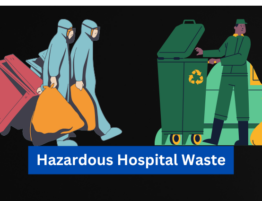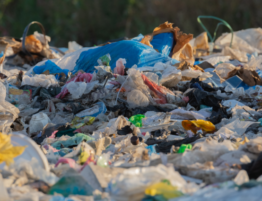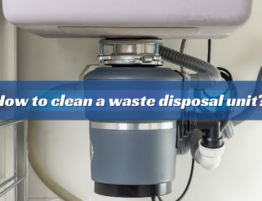
In today’s environmentally conscious world commercial waste disposal is a critical aspect of running a business. Proper waste management not only helps businesses comply with local regulations but also enhances their reputation among customers who value sustainability. This guide will explore the various types of commercial waste effective disposal methods and the importance of efficient waste management strategies.
Understanding Commercial Waste Disposal
Commercial waste disposal refers to the process of collecting, managing and disposing of waste generated by businesses including offices, retail stores, restaurants and construction sites. The waste produced by these entities can be categorized into several types each requiring specific disposal methods. Knowing how to handle each waste type effectively is vital for any business looking to minimize its environmental impact and adhere to legal requirements.
Types of Commercial Waste
1. General Waste
General waste is the most common type of waste generated by businesses. It includes items that cannot be recycled such as food wrappers, disposable utensils and other everyday waste. This waste typically ends up in landfills so proper disposal is essential.
For businesses implementing a reliable commercial garbage disposal service is key. This often involves scheduling regular pickups with waste management companies that provide general waste collection services. By doing so businesses can ensure that their general waste is removed promptly and safely.
2. Recyclable Waste
Recyclable waste includes materials that can be processed and repurposed such as paper cardboard, plastics metals and glass. Businesses should prioritize recycling to reduce landfill contributions and lower waste disposal costs.
Setting up designated recycling bins and educating employees about proper recycling practices can significantly enhance the recycling rate within a company. Many local waste management companies offer specialized business waste collection services that include recycling. Regular pickups of recyclable materials help maintain a clean environment while supporting sustainable practices.
3. Hazardous Waste
Hazardous waste is any waste that poses a threat to public health or the environment. This includes items like chemicals, batteries and certain electronic products. Improper disposal of hazardous waste can lead to serious legal consequences and environmental damage.
Businesses must understand local regulations regarding hazardous waste disposal. Partnering with specialized hazardous waste disposal services is essential to ensure compliance. These services often include safe transportation and disposal methods such as incineration or chemical neutralization providing peace of mind to businesses handling such materials.
4. Construction and Demolition Waste
The construction industry generates significant amounts of waste including wood concrete metals and drywall. Properly managing construction and demolition waste is crucial for maintaining site safety and minimizing environmental impact.
Many waste management companies offer commercial dumpster service specifically designed for construction sites. These services provide large dumpsters for efficient collection and disposal of construction debris. Additionally recycling options are available for many construction materials which can help reduce overall waste.
5. Organic Waste
Organic waste comprises biodegradable materials such as food scraps, garden trimmings and other organic materials. With the growing focus on sustainability businesses are increasingly seeking ways to manage organic waste effectively.
Composting is the best disposal method for organic waste allowing businesses to reduce landfill contributions while creating nutrient-rich soil for gardening. Some waste management companies offer small business waste collection services that include organic waste making it easier for businesses to implement composting programs.
6. Electronic Waste (E-Waste)
Electronic waste includes outdated or broken electronic devices like computers, monitors and phones. As technology rapidly evolves businesses often upgrade their equipment generating e-waste that must be disposed of properly.
Improper disposal of e-waste can lead to environmental contamination due to hazardous materials present in electronics. Businesses should seek out certified e-waste recycling programs which ensure that valuable materials are recovered and harmful substances are handled correctly.
7. Medical Waste
Medical waste is generated by healthcare facilities and includes items like used syringes, bandages and pharmaceuticals. This type of waste requires careful handling and disposal to protect public health.
Medical waste must be treated as hazardous and disposed of according to strict regulations. Partnering with specialized medical waste disposal services ensures that this waste is managed safely and legally.
Importance of Efficient Waste Management
Effective commercial waste disposal is crucial for several reasons:
- Environmental Responsibility: Proper waste management helps reduce the negative impact of waste on the environment contributing to cleaner air, water and soil.
- Legal Compliance: Many regions have strict regulations regarding waste disposal. Non-compliance can result in hefty fines and legal repercussions.
- Cost Savings: Efficient waste management can lead to cost savings. Businesses can reduce disposal costs by recycling and minimizing waste generation.
- Enhanced Reputation: Customers are increasingly looking for environmentally responsible companies. A commitment to sustainable waste disposal can enhance a business’s reputation and attract more customers.
- Employee Morale: A clean and well-managed workplace can boost employee morale and productivity. Employees take pride in working for a company that values sustainability and environmental responsibility.
Strategies for Effective Commercial Waste Disposal
1. Segregation of Waste
One of the most effective strategies for managing commercial waste is proper segregation. Businesses should implement a waste segregation system that categorizes waste into general recyclable hazardous and organic. This practice not only streamlines waste disposal but also maximizes recycling efforts.
2. Employee Training
Educating employees about waste management practices is essential for success. Conducting regular training sessions helps employees understand the importance of proper waste disposal and recycling. Providing clear guidelines on what can and cannot be recycled can minimize contamination in recycling bins.
3. Collaborating with Waste Management Companies
Partnering with reputable waste management companies that offer business waste disposal and collection services can significantly enhance a company’s waste management efforts. These companies often provide customized solutions tailored to a business’s specific waste needs.
4. Exploring Local Disposal Options
Searching for business waste collection near me can yield local waste management companies that offer tailored services. Choosing local providers can lead to more efficient waste management due to shorter transportation distances and more frequent pickups.
5. Implementing Sustainable Practices
Adopting sustainable practices such as reducing packaging and reusing materials can significantly minimize waste generation. Businesses should explore eco-friendly alternatives to their products and services to promote sustainability.
Final Thoughts
Commercial waste disposal is a crucial component of responsible business management. By understanding the different types of waste and implementing effective disposal strategies businesses can minimize their environmental impact, comply with regulations and enhance their overall reputation. Whether it’s through partnering with waste management companies educating employees or exploring local disposal options, taking proactive steps toward waste management can benefit both businesses and the environment. By embracing these practices businesses can lead the way in promoting sustainability and creating a cleaner future for all.








